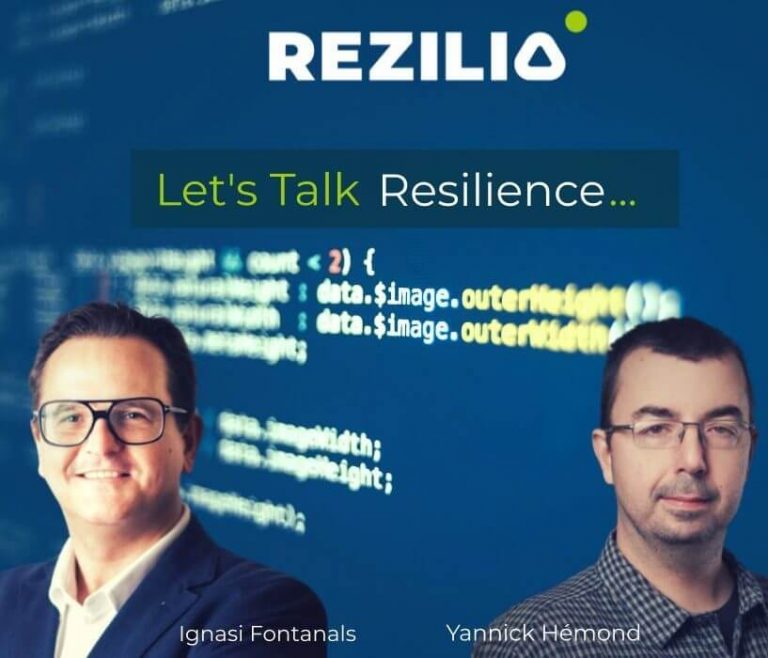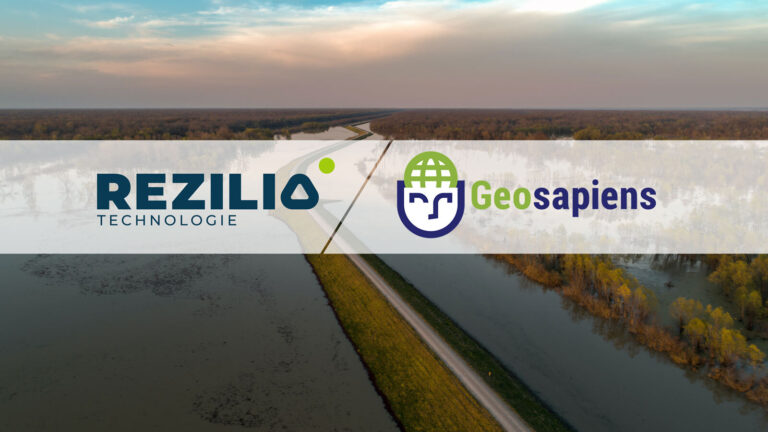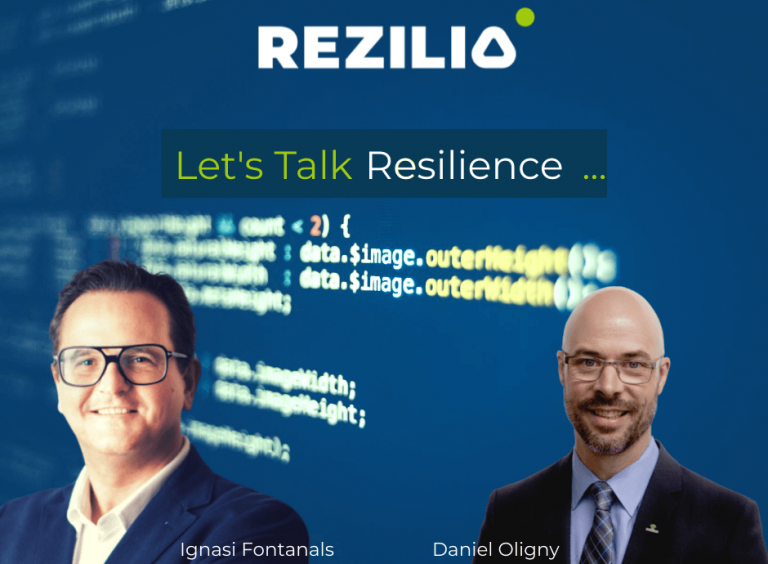Digital transformation to become more resilient in the face of crises situations
(Translated and adapted from original text in French)
Right after being surprised by a global crisis, we need to be aware that another one will be just around the corner and that digitalization will not be the only, but an important element to help us to face this challenging future.
This future is moving towards to the unknown more than towards to the uncertainty, and it will bring us a batch of difficulties. The emerging chronic stresses and acute shocks will need to be managed simultaneously, being aware of their interdependencies, their cascading effects, and the requirement to assimilate the know-how that comes from each of these crises, (often this knowledge is acquired by professionals who will no longer be there when the next crisis occurs).
All these points will be also critical to manage the short- and medium-term crisis situations in a concrete territory or in an organization or business. When managing an emergency or a crisis, we focus on a precise event, limited in a defined time, with the desire for a quick return to the initial state. In general, we have to manage 600% more information with 80% less time to analyze and process it.
Another issue to cope with is the dependency of a business or a city to essential services such as electricity, internet access or health services that makes them vulnerable during interruptions and cause chain reactions with increasing costs for the economic activities of a territory and its citizens. The creation of crisis comitees (tactical or situation rooms) and their management with a resilient approach, will then enable to reduce the consequences of disruptions, reaching an improved state of communities and industries allowing the emergence of their resilience in the face of a shock.But how can we rely on specific and adapted digital solutions –respecting “digital sobriety” in terms of our environmental impact -, to cover all these range of dimensions and challenges that crisis management and resilience need to consider?
But how can we rely on specific and adapted digital solutions –respecting “digital sobriety” in terms of our environmental impact -, to cover all these range of dimensions and challenges that crisis management and resilience need to consider?
If you have already set plans in printed folders… or you hold information about your risks and business continuity scattered throughout your organization…or if you have the commitment to business continuity or operational resilience of your top management – ready to start asking the right questions about your ability to bounce back – , then you have what it takes to start the digital transformation of your commitment, analysis, and planning (often forgotten in a drawer …) to build a new dynamic and efficient reality to manage crisis situations.
Becoming more effective in crisis management through digital transformation
At REZILIO, we support our clients around the globe to accomplish this digital transformation in the field of event and crisis management. To do so, we design innovative digital applications for dynamic and intelligent risk management and predictive event management. Our platform enables practitioners to better develop their risk analyses, create and maintain emergency plans or enhance operational support managing incidents to minimize business impacts, crisis or unexpected events in communities, business, industries, critical infrastructures, or public open sites that require preventive measures.
In a tangible way, REZILIO collects and gathers the information disseminated along departments and territories to ensure data maintenance. It automatically updates the contact information and the important call numbers of the organization’s key people, thus ensuring the robustness of the alert and mobilization chain in case of an emergency or a crisis. Control version of the plan also facilitates the tedious and relatively complex task of maintaining an up-to-date document while ensuring regulatory and standards compliance.
REZILIO’s suite includes a LOGBOOK module to ensure the traceability of each event and synthesizes critical information and decisions. The module manages tasks and requests at the strategic, tactical, and operational levels, thus provides a global vision of the situation during a crisis in order to be able to make the best decisions for an organization.
Our customers, who are risk and emergency managers and resilience analysists, will soon have access to a risk and resilience management module codified by ISO-31000 (Risk Management standards) and IS0-223010 (Security and Resilience standards) Another example of developments will be the capacity to use the platform to understand and anticipate cascading or domino effects. REZILIO Cascading Effects module will ensure the generation of predictive event scenarios, to identify disruption, thus allowing to better prepare and adapt to systemic risks in a multi-risk approach. An adapted IT architecture equips the platform with multi-event, multi-site, multi-organizational and multi-plan capabilities to host different types of plans from different organizations according to the desired permission levels. The platform is equipped with a GIS that allows advanced geospatial visualization adapted to crisis situations.
Bounce back after every crisis
The digital transformation will then empower the resiliency by automating routines and repetitive operations to focus on high value-added tasks, such as information analysis or support for customers’ decision making. This pandemic has shown us the importance of digitalization in our daily work processes but also and especially, its importance in the field of crisis management, which is rapidly evolving and requires digital management in a lockdown mode with awareness about the ecological issues of this digital practices.
Further aspects have also been accelerated, such as the (sober) use of technology to develop simulations and boost modeling capabilities to predict scenarios, or the use of hybrid combinations of Simulation and Machine Learning to produce advanced decision-support scenarios.
Beyond discussions about the place of technology in our new normality or whether if the resilient thinking has arrived to help us to complement crisis management (an interesting debate no doubt…), the reality is that many organizations and territories are not equipped with robust digital tools to manage crisis and resilience plans. Often, they have been devoting a lot of effort to deploy those plans with public and private resources, and the lack of updating makes them obsolete.
The digital transformation of crisis management plans is a wise strategic choice that will help you to be more resilient in the face of crises and natural disasters!
REZILIO Team
???? Book a private tour of Rezilio with one of our experts by clicking here !






